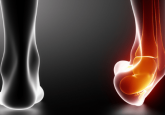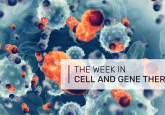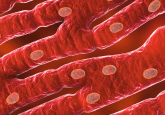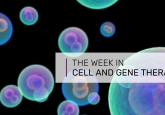Top 5 grants in regenerative medicine: April 2021

This month’s top grants in regenerative medicine, sourced from Dimensions, includes projects on: utilizing bioengineering tools to create bioartificial tissue constructs for modeling the human heart; recreating the structural and cellular complexity of blood vessels by using an agile biomanufacturing platform; designing biomaterials with enzymatic logic gates; employing the most physiological human lung tissue models to date to study the biology of ARDS and to test the therapeutic potential of MSC extracellular vesicles; and understanding brain regeneration in a zebrafish larval model of intracerebral hemorrhage.
Check out this month’s top grants in regenerative medicine:
- CAREER: tissue engineering of the developing human heart
- Producing blood vasculature using an agile biomanufacturing platform
- Designing biomaterials with enzymatic logic gates
- Using human lung tissue models to develop a personalized treatment for ARDS
- Understanding brain regeneration in a zebrafish larval model of intracerebral hemorrhage
CAREER: tissue engineering of the developing human heart
The overall goal of this project is to utilize advanced bioengineering tools, including 3D bioprinting and human induced pluripotent stem cell technologies, to create bioartificial tissue constructs that can serve as high-fidelity models of the human heart. The engineered models serve as a research-enabling platform to examine cellular processes involved in normal development of the human heart as well as the formation of various heart defects.
The investigators hope that this research could ultimately lead to the development of novel and more effective clinical interventions and/or therapeutics to treat carious congenital heart diseases. Their device could be integrated with other tissue/organ models in a human-on-a-chip for a systems-level understanding of various developmental disorders.
Funding amount: USD$435,000
Funding period: 1 April 2021–31 March 2026
Funder: Directorate for Engineering (NSF ENG)
Research organization: Emory University (GA, USA)
Producing blood vasculature using an agile biomanufacturing platform
The aim of this project is to develop an adventurous manufacturing workflow to recreate the structural and cellular complexity of blood vessels by employing novel manufacturing strategies. The project combines advanced materials, 3D printing and advanced imaging to provide transformative solutions to key healthcare challenges facing our aging society.
This project will address the growing demand for functional tissue grafts and organs for transplantation and drug discovery. The investigators hope to enable the rapid production of blood vessels from small (width of hair) to large (centimeters) sizes, and harness advanced biomaterials, designed to change from solution to gel by mixing in the fluid delivery system, to achieve this goal.
Funding amount: USD$343,000
Funding period: 31 March 2021–30 March 2023
Funder: Engineering and Physical Sciences Research Council (EPSRC)
Research organization: Manchester BIOGEL, REGEMAT 3D SL, University of Birmingham (UK)
Designing biomaterials with enzymatic logic gates
This proposal takes a novel approach to designing biomaterials with enzymatic logic gates. By mimicking enzymatic biocatalytic cascades present in natural tissues, these biomaterials will be able to receive and process multiple biochemical signals, and logically elicit therapeutic outputs in response to specific combinations of input signals.
This goal will be realized using enzymatically active hydrogel particles as building blocks that will be assembled into biomaterial coatings or 3D constructs, which can be applied to surfaces of currently available biomaterials or serve as autonomous implantable biomaterials, respectively.
Funding amount: USD$310,000
Funding period: 1 April 2021–31 March 2024
Funder: European Commission
Research organization: Eindhoven University of Technology (The Netherlands), Harvard University (MA, USA)
Using human lung tissue models to develop a personalized treatment for ARDS
In this project, the team hope to use cutting-edge technology and employ the most physiological human lung tissue models to date to study the biology of acute respiratory distress syndrome (ARDS) endotypes and to test the therapeutic potential of mesenchymal stem cell extracellular vesicles (MSC EVs).
The main objectives include: i) to reveal how endotype-specific environments alter human lung tissue and how these changes are affected by EV treatment at a single cell level; ii) to study how endotype-specific environments (with or without EV treatment) alter functional properties of the alveolar epithelial–endothelial barrier using lung-on-a-chip microfluidic model; and iii) to study how endotype-specific environments (with or without EVs) alter metabolism of the primary human pulmonary cells involved in ARDS pathophysiology using the Seahorse Metabolic Analyzer.
Funding amount: USD$261,000
Funding period: 1 April 2021–31 March 2023
Funder: European Commission
Research organization: Queen’s University Belfast (UK)
Understanding brain regeneration in a zebrafish larval model of intracerebral hemorrhage
The ultimate aim of this work is to enable scientists to develop better models of brain regeneration in which to investigate regenerative therapies for patients that could potentially prevent long-term disability after a brain hemorrhage and reduce the need for animal models in the long term.
The first step of this research project will be to image the cells inside the brain responding to the bleed, to answer the following questions: how quickly do immune cells clear the blood? What fills the space left by the hematoma? Do new brain cells form in the space, or do existing ones spread across the gap? The second part of the project will require extracting these brain stem cells from the zebrafish and investigating the genetic and proteomic factors that influence their behavior.
Funding amount: USD$172,000
Funding period: 4 April 2021–3 April 2023
Funder: National Centre for the Replacement Refinement and Reduction of Animals in Research
Research organization: University of Manchester (UK)
Brought to you with support from:






